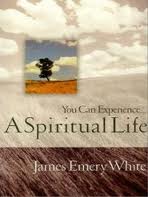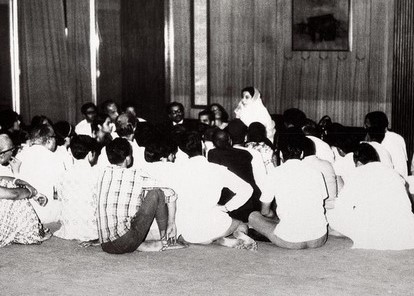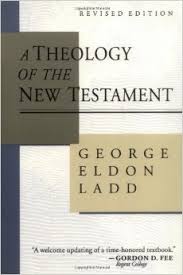Jesus was talking to Nicodemus about a new beginning
“Jesus was talking to Nicodemus about a new beginning, a fresh start, and a chance to become a new person by entering into a life-changing, personal relationship with God.”
 “The search of Nicodemus is the search of many people in the world: a spiritual search for ultimate answers to life’s questions. And like many people, Nicodemus is drawn to Jesus. Though he is not sure who Jesus is, he knows that Jesus is a man who comes from God, recognizing that God is in Jesus in a away distinct from other men. So he goes to Jesus—at night—because he’s not quite ready to let just anybody know what’s going on inside of him.
“The search of Nicodemus is the search of many people in the world: a spiritual search for ultimate answers to life’s questions. And like many people, Nicodemus is drawn to Jesus. Though he is not sure who Jesus is, he knows that Jesus is a man who comes from God, recognizing that God is in Jesus in a away distinct from other men. So he goes to Jesus—at night—because he’s not quite ready to let just anybody know what’s going on inside of him.
When Nicodemus gets there, he opens up the conversation by telling Jesus, ‘There’s something about you that’s different. You’ve got something in your life that I don’t have in mine. I want to know what it is. I want to be in a relationship with God. Tell me how.’ Jesus looks him in the eye and realizes that he sincerely wants an answer—so He gives it to him. And it’s one of the most fascinating, provocative replies that has ever been recorded. Take another look: In reply Jesus declared, ‘I tell you the truth, no one can see the kingdom of God unless he is born again’ (v. 3)
Jesus says, ‘You want to know the way? You must be born again.’ Nicodemus is more than just a bit confused. ‘The way is being born again? That makes no sense at all!’ And we can understand his reaction, can’t we? Our reaction would probably have less bewilderment and more cynicism. A modern-day Nicodemus would probably say, ‘You’ve got to be kidding me. I thought you were different. Born again? That’s what the televangelists and radio preachers talk about—or scream about. That line is the butt of a hundred jokes. Please tell me you’re not going to take that route.’
But Jesus simply looked him in the eye and said: ‘I’m telling you the truth. Unless someone is born not only physically, but spiritually, he cannot enter the kingdom of God. Flesh gives birth to flesh, but the Holy Spirit gives birth to spirit. So you really shouldn’t be so surprised that I would say you must be born again.’
And that struck a chord with Nicodemus, because it spoke of something deeper that just belonging. Nicodemus was already a member of the Pharisees, the religious elite. And not only that, he was a member of the Jewish ruling council—seventy-one men who were the governing authority for Jews during the time of Jesus. And this wasn’t about simply behaving. As a Pharisee, Nicodemus led a very moral life. And Nicodemus was so committed to the ritualistic purity of the Pharisees that he was made one of their leaders. And this wasn’t about merely believing either. As a Pharisee, Nicodemus was devoted to the Scriptures. Jesus seemed to be calling Nicodemus to something deeper, something much more profound.
Jesus was talking to Nicodemus about a new beginning, a fresh start, and a chance to become a new person by entering into a life-changing, personal relationship with God. And once that became clear, you can only imagine Nicodemus’ relief. He craved more as a spiritual being. He wanted a relationship, an encounter, an opportunity to come into contact with the living God and have his entire life reshaped, remade, reoriented—reborn.”
You Can Experience . . . A Spiritual Life
James Emery White, Thomas Nelson—October 21, 1999
“By describing births of both water and the Spirit, Jesus contrasted physical birth with spiritual birth. He said we need both.”
Jesus told Nicodemus that he had to be born again. In other words, He was telling Nicodemus that he needed a second birth. His first birth was insufficient. Being born again is not something you do. it’s something you experience. Jesus was crystal clear: You will not experience the kingdom of God unless you experience a second birth.
I asked a gentleman if he was born again. He told me, ‘Sure, I’ve been a Christian all my life.’ That’s not what Jesus was saying. He said we need a second birth. We need to be born again.
A Spiritual Birth
Nicodemus was thinking in physical terms when he asked, ‘How can a man be born when he is old? Can he enter a second time into his mother’s womb and be born?’ (John 3:4).
Jesus responded that being ‘born again’ is not only experiencing a second birth but also experiencing a spiritual birth. Jesus answered, ‘Most assuredly, I say to you, unless one is born of water and the Spirit, he cannot enter the kingdom of God. That which is born of the flesh is flesh, and that which is born of the Spirit is spirit’ (John 3:5-6).
By describing births of both water and the Spirit, Jesus contrasted physical birth with spiritual birth. He said we need both.
Jesus described the physical birth in verse 5 when He said ‘born of water.’ When a woman is pregnant, a sack of water protects the baby inside her. She knows the baby is ready to come when the water breaks. When the baby is born, it’s all wet. The physical birth involves being ‘born of water.’
By saying, ‘That which is born of the flesh is flesh,’ Jesus was further referring to physical birth. When we are born physically, we mark the event with a certificate that gives the date, time, and place of our arrival. Note carefully that Jesus said the physical birth alone will not get us into the kingdom of God. We need a spiritual birth. We need to ‘born of water and the Spirit’ (John 3:5). Jesus added, ‘The wind blows where it wishes, and you hear the sound of it, but cannot tell where it comes from and where it goes. So is everyone who is born of the Spirit’ (John 3:8).”
Evangelism Is…: How to Share Jesus With Passion and Confidence
Dave Earley and David Wheele, B&H; Academic—June 1, 2010, pp. 97-8
.jpg)
“Today we are celebrating the resurrection of Christ. With it we also have to celebrate the resurrection of human beings, of Sahaja Yogis, who have been resurrected as realised souls. With that we have to understand that we enter into a new awareness. He had to come down and again to show to this world that you are the eternal life, that you lead a life that is spiritual, which never perishes. You have to rise, into that new realm, which is the Realm of God Almighty, what you call the Kingdom of God.
And He said it very clearly to Nicodemus that ‘You have to be born again’ when he asked, ‘Am I to enter back into my mother’s womb?’ And He said it so clearly. Those who don’t want to see can remain blind. No, that is,
THE MOTHER: Messiah-Paraclete-Ruh-Devi
whatever is born of the flesh, is the flesh, but whatever is born of the Spirit is the Spirit.’
But whatever is manmade is not the Spirit. This is the clear statement of Christ, which people wanted to avoid, and start their own organisations, and ideas, and created a very mythical thing in His name. And now the time has come for it to be blasted. It has been going on and on now for thousands of years, captures so many innocent people and people are into it.”
THE MOTHER: Messiah-Paraclete-Ruh-Devi
V4 No 23 Sept 84 p4
“The second fundamental of Christianity is that Christ died for our sins, that He suffered for us. We do not have to suffer for religion; we do not have to suffer for our ascent. Only we are to be realized souls so that we become one with the Divine; the yoga takes place.
So firstly He said to Nicodemus that, ‘You are to be born again,’ and when Nicodemus said, ‘Is it I [have to] enter into the womb of my mother?’ He says, ‘No, whatever is born of the flesh is the flesh. You are to be born out of the Holy Ghost.’
And the third thing which is the most important thing that He said was that, ‘I will send you a Redeemer. I’ll send you a Counselor.’ What about that prediction that He made about the three qualities of the Holy Ghost who will save you—the Counselor, the Redeemer and the Comforter?
Instead of forming these branches of religion — same in Islam, same in Hinduism — we have the same problem that you use your mental projections to solve the spiritual problems. You cannot solve through your petty mind which is such a limited thing. Something living has to happen within us to make us that which is promised. It cannot be an experience of jumping, or changing your dresses, or leaving your dresses. All these we can do ourselves.”
THE MOTHER: Messiah-Paraclete-Ruh-Devi
Public Program 1 in Paris—April 22, 1985
Apokalypsis: The fulfillment of eschatological instruction by the Paraclete in the Age to Come promised by Jesus at the Last Supper
An apocalypse (Greek: apokalypsis meaning “an uncovering”) is in religious contexts knowledge or revelation, a disclosure of something hidden, “a vision of heavenly secrets that can make sense of earthly realities.” (Ehrman 2014, 59)
“An apocalypse (Ancient Greek: apokalypsis … literally meaning “an uncovering”) is a disclosure or revelation of great knowledge. In religious and occult concepts, an apocalypse usually discloses something very important that was hidden or provides what Bart Ehrman has termed, “A vision of heavenly secrets that can make sense of earthly realities”. Historically, the term has a heavy religious connotation as commonly seen in the prophetic revelations of eschatology obtained through dreams or spiritual visions.” Wikipedia 2021-01-09
Total number of recorded talks 3058: Public Programs 1178, Pujas 651, and other (private conversations) 1249“The Paraclete will come (15:26; 16:7, 8, 13) as Jesus has come into the world (5:43; 16:28; 18:37)… The Paraclete will take the things of Christ (the things that are mine, ek tou emou) and declare them (16:14-15). Bishop Fison describes the humility of the Spirit, ‘The true Holy Spirit of God does not advertise Herself: She effaces Herself and advertises Jesus.’ …
It is by the outgoing activity of the Spirit that the divine life communicates itself in and to the creation. The Spirit is God-in-relations. The Paraclete is the divine self-expression which will be and abide with you, and be in you (14:16-17). The Spirit’s work is described in terms of utterance: teach you, didasko (14:26), remind you, hypomimnesko (14:26), testify, martyro (15:26), prove wrong, elencho (16:8), guide into truth, hodego (16:13), speak, laleo (16:13, twice), declare, anangello (16:13, 14, 15). The johannine terms describe verbal actions which intend a response in others who will receive (lambano), see (theoreo), or know (ginosko) the Spirit. Such speech-terms link the Spirit with the divine Word. The Spirit’s initiatives imply God’s personal engagement with humanity. The Spirit comes to be with others; the teaching Spirit implies a community of learners; forgetful persons need a prompter to remind them; one testifies expecting heed to be paid; one speaks and declares in order to be heard. The articulate Spirit is the correlative of the listening, Spirit-informed community.
The final Paraclete passage closes with a threefold repetition of the verb she will declare (anangello), 16:13-15. The Spirit will declare the things that are to come (v.13), and she will declare what is Christ’s (vv. 14, 15). The things of Christ are a message that must be heralded…
The intention of the Spirit of truth is the restoration of an alienated, deceived humanity… The teaching role of the Paraclete tends to be remembered as a major emphasis of the Farewell Discourses, yet only 14:26 says She will teach you all things. (Teaching is, however, implied when 16:13-15 says that the Spirit will guide you into all truth, and will speak and declare.) Franz Mussner remarks that the word used in 14:26, didaskein, “means literally ‘teach, instruct,’ but in John it nearly always means to reveal.” (Stevick 2011, 292-7)
The Holy Spirit as feminine: Early Christian testimonies and their interpretation,
Johannes van Oort, Radboud University, Nijmegen, The Netherlands
Department of Church History and Church Polity, Faculty of Theology, University of Pretoria, South Africa





